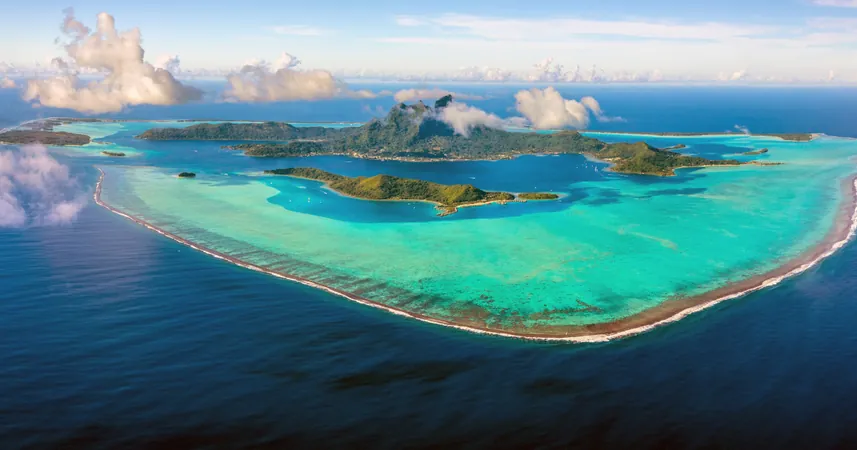
Could Life Have Begun on Volcanic Islands? New Research Points to Porous Rocks!
2024-11-24
Author: Ming
Introduction
The quest to unravel the origins of life on Earth continues to captivate scientists and philosophers alike. Understanding this elusive beginning not only sheds light on our own planet’s history but also guides astronomers in their search for extraterrestrial life across the cosmos.
Traditional Theories
Traditionally, hypotheses surrounding the emergence of life have centered on a few key scenarios. For many years, the warm pond theory reigned supreme, proposing that life began in geothermally heated water abundant with amino acids, potentially delivered by meteorites. Another strong contender is the hydrothermal vent hypothesis, which posits that life may have sprung from the nutrient-rich, warm waters surrounding these underwater features.
New Research by Philipp Schwintek
However, a groundbreaking study by Philipp Schwintek, a PhD student from Ludwig-Maximilians-Universität, introduces an exciting new possibility: porous rocks found on volcanic islands. Schwintek argues that these geological formations could create the optimal conditions necessary for RNA—an essential building block of life—to form and replicate.
Factors Favoring Volcanic Islands
In his paper, Schwintek highlights critical factors that make volcanic islands a prime suspect in the search for life’s origins. These locations not only provide a wealth of nutrients but also experience rapid temperature fluctuations, both of which are thought to be conducive to the formation of RNA. Schwintek explains, “We investigated a simple and ubiquitous geological scenario where water movement through a rock pore was dried by a gas percolating through the rock to reach the surface. Such a setting would be very common on volcanic islands on early Earth, which offered the necessary dry conditions for RNA synthesis.”
Experimental Findings
Through a series of experiments, Schwintek and his team explored the interactions between water and gas in rock pores. They hypothesized that, due to continuous evaporation, nucleic acids would accumulate at the interface of water and gas. Remarkably, their findings supported this hypothesis, indicating that water did evaporate as expected, and nucleic acids indeed gathered near the gas-water boundary.
Implications of the Research
This research further proposes that the movement of gas creates a circular fluid flow at the interface, driving the separation of nucleic acid strands by forcing them into areas with varying salt concentrations.
Conclusion and Future Directions
Although Schwintek's work does not conclusively prove that life originated in these volcanic rock environments, it opens up compelling avenues for future research. The implications of his findings could revolutionize our understanding of how life might arise not only on Earth but also in similarly hostile environments elsewhere in the universe.
Availability and Call for Further Research
This intriguing preprint paper is available for viewing on eLife, inviting more scientists to examine and validate these promising results.
Final Thoughts
Is it possible that life on our planet began amidst the rugged beauty of volcanic islands? As research continues to unfold, we may soon discover the surprising truths behind our existence!


 Brasil (PT)
Brasil (PT)
 Canada (EN)
Canada (EN)
 Chile (ES)
Chile (ES)
 España (ES)
España (ES)
 France (FR)
France (FR)
 Hong Kong (EN)
Hong Kong (EN)
 Italia (IT)
Italia (IT)
 日本 (JA)
日本 (JA)
 Magyarország (HU)
Magyarország (HU)
 Norge (NO)
Norge (NO)
 Polska (PL)
Polska (PL)
 Schweiz (DE)
Schweiz (DE)
 Singapore (EN)
Singapore (EN)
 Sverige (SV)
Sverige (SV)
 Suomi (FI)
Suomi (FI)
 Türkiye (TR)
Türkiye (TR)